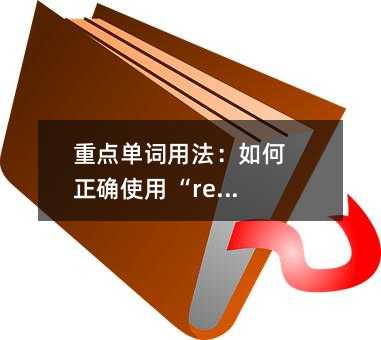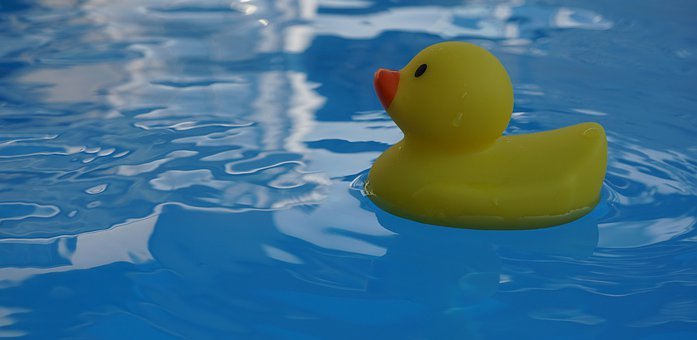
篇1:重点单词用法:如何正确使用 \"remind\"
remind
remind是及物动词,意为“提醒,使记起”。
1.remindsb.意为“提醒某人”。如:
HeremindedmeintimejustasIwouldmakethesamemistakeagain.
他就在我差一点犯同样的错误时,及时提醒了我。
2.remindsb.todosth.意为“提醒某人做……”。如:
Theteacherremindedustopayattentiontothepronunciationofthenewword.
老师提醒我们要注意这个生词的发音。
3.remindsb.ofsb./sth.意为“使某人想起……”。如:
Theearringsremindmeofmygrandma.
这对耳环使我想起了我的奶奶。
4.remindsb.that...意为“提醒某人……”。如:
PleaseremindmethatIshouldbringhimapresentforhisbirthday.
请提醒我给他带生日礼物。
篇2:重点单词用法:如何正确使用 \"remind\"
have
【主要用法】
1.用作助动词,构成完成时态,无实义。如:
Whathaveyoubeendoingsincethen?
2.用作及物动词,表示“有”,常可与havegot替换。如:
Ihave(got)anEnglishdictionary.
3.与名词(多与动词同形)连用,表示一种活动或动作。如:
haveatalk/look/drink/rest/quarrel
4.用作及物动词,表示“吃、喝、抽(烟)”。如:
havebreakfast/somecoffee/acigarette
5.用作及物动词,表示“使、让”。
①跟不带to的不定式作宾补,表示“让某人做某事”。如:
Shehadthelittlegirllivewithher.
②跟过去分词作宾补,表示“某事由别人做”。如:
Shehadhereyestestedyesterday.
③有时也跟现在分词、副词、介词短语作宾补。如:
Ican’thavethatkindofthinghappening.
Willyouhavehimin?
CanIhavethechildrentoourhouse?
【短语搭配】
havefun/agoodtime/agreattime玩得开心
haveto不得不、必须
haveacold患感冒haveago试一试
【考题回放】
1.—Tinahadnothingforbreakfast,_____she?
—_____.Shehadsomebreadandmilk.(06江苏扬州)
A.had;YesB.had;No
C.did;YesD.did;No
2.—HaveyoufinishedreadingHarryPotterV?
—_____.Istillhavesomepages.(05福建厦门)
A.Yes,IdoB.No,Idon’t
C.Yes,IhaveD.No,Ihaven’t
篇3:重点单词用法:如何正确使用 \"remind\"
turn
1.作名词,意为“(依次轮到每个人的)机会”。常用于It’sone’sturntodosth,意为“轮到某人做某事”,以及waitone’sturn,意为“等着轮到某人”。如:
It’syourturntocleanuptheclassroom.
该你打扫教室了。
You’dbetterwaityourturntogettheticket.
你最好按顺序等着拿票。
2.作动词,意为“转弯,转变方向”。如:
Thewheelturnedslowly.
车轮缓慢地转了个弯。
3.常见短语动词:
turnon打开
turnoff关掉
turnup调节(收音机等)使音量变大
turndown调节(收音机等)使音量变小
[友情提示]turn还可用作系动词,后面跟形容词作表语。如:
Whenautumncomes,leavesturnyellow.
当秋天来到的时候,叶子都变黄了。

篇4:重点单词用法:如何正确使用 \"remind\"
clean
1.多作及物动词,有时也可用作不及物动词,意思是“弄干净,擦干净,打扫干净”。如:
Pleasecleantheblackboard.请把黑板擦干净。
Theseplatescleaneasily(=areeasytoclean).
这些盘子很容易擦干净。
2.常用词组:
(1)cleanup意思是“收拾整洁,清理,整顿”。如:
Thecitygovernmenthasdecidedtocleanupthecity.市政府已决定要整顿市容。
[友情提示]可构成合成词:clean-up。如:
I’mgoinghometohaveagoodclean-up.
我将回家好好收拾一下。
(2)cleanout意思是“把(房间、抽屉等)弄干净整齐,清除”。如:
Iaskedthechildrentocleanouttheirdrawers.
我让孩子们把他们的抽屉收拾整齐。
[友情提示]可构成合成词:clean-out。如:
Theplaceneedsagoodclean-out.
这个地方需要好好清理一下。
篇5:重点单词用法:如何正确使用 \"remind\"
中考必备:10组重点单词/短语/句型用法
1. cost / take / spend / pay 花费
花费时间做某事:
It takes sb some time to do sth . = sb spend some time (in)doing sth .= sb spend some time on sth .
某人花钱买某物:
sb spend some money on sth .= sb pay some money for sth.= sth cost sb . some money .
注意:
⑴ cost 和 pay 只指花费钱,take 只指花费时间,spend 可以指花费钱也可以指花费时间。
⑵ spend 和 pay 主语都是人, cost 主语是物,take 一般用于 It takes sb some time to do sth. 句型中。
2. thanks for 为…...而感谢
Thanks for inviting me to your birthday party .
谢谢你邀请我来你的生日聚会。
thanks to 多亏/由于
Thanks to your help. I got good grades .
幸亏你的帮助,我才取得好成绩。
3. 多么…...
what + 名词;how + 形容词/ 副词
What bad weather !多么糟糕的天气啊!
How hard he works ! 他工作多么努力啊!
What fresh vegetables ! 多么新鲜的蔬菜啊!
How cute a monkey it is ! 它是一只多么可爱的猴子啊!
4 . 因为......;由于......
because(连词)+从句
because of(介词短语)+ 名词(短语)
I didn’t go to school because I had a headache.
因为我头疼,所以我没去上学。
He was late for class because of the bad weather .
由于糟糕的天气,他上课迟到了。
注意:because和 so不能同时连用 。
5 . 来自
be from = come from
Where are you from ? = Where do you come from?
你来自哪里?
6 . How often 多久一次(对频率提问)
How long 多久(对一段时间提问)
How soon多久以后 (对将来时间提问)
How far 多长(询问多长距离)
— How long have you been collecting the kites ?
你收集风筝多长时间了?
—For ten years.
十年了。
— How often do you go shopping ?
你多久购物一次?
—Sometimes.
有时。
— How soon will your father come back ?
你爸爸多久以后回来?
—In two years.两
年后。
— How far is it from your home to school ?
从你家到学校多远?
—About ten miles.
大概十英里。
7 . 乘坐交通工具
take a / the +交通工具
by+交通工具=on a 交通工具
交通工具有:train/bus/car/taxi/boat/subway/plane...
He takes a bus to bank.= He goes to bank by bus.
他乘坐公共汽车去银行。
注意:骑自行车、马或驴用ride
ride one’s bike / ride a horse / ride a donkey
8 . 对不起
Excuse me (劳驾,客套话)
Sorry (表示道歉)
Excuse me. Where is Tianfu Square in Chengdu ?
打扰一下,成都的天府广场在哪里?
—Don’t eat in class.
不要在课堂上吃东西。
—Sorry. Ms Clark .
对不起,Clark小姐。
9 . 声音
sound (自然界的各种声音)
noise(噪音)
voice(人的嗓音)
Lucy has a sweet voice.
露西有甜美的嗓音。
Don’t make noise.
不要制造噪音。
10. 像......
look like (外貌看起来像… )
be like (性格像… )
—Lily look like Lucy .
莉莉长得像露西。
—Oh , they are twins.
哦,她们是双胞胎。
Tony is like a monkey because he is cute and playful .
托尼像只猴子,因为他可爱又爱玩耍。
篇6:重点单词用法:如何正确使用 \"remind\"
prefer
prefer是及物动词,意为“更喜欢,更喜爱”,相当于like...better。
1.prefersth.意为“更喜欢……”。如:
Hepreferscountrylife.他更喜欢乡村生活。
2.preferdoing/todosth.意为“更喜欢干……”。如:
Ipreferwatching/towatchTV.
我更喜欢看电视。
3.prefersb.todosth.意为“宁愿某人做……”。如:
Ipreferyoutostayherealittlelonger.
我更喜欢你在这里多呆一会儿。
4.prefersth.tosth.意为“比起……更喜欢……”。如:
SheprefersEnglishtoChinese.
比起语文来她更喜欢英语。
5.preferdoingsth.todoingsth.=prefertodosth.ratherthandosth.意为“喜欢做……而不喜欢做……,宁愿做……而不愿做……”。如:
Ipreferdoingtotalking.
我喜欢做事,不喜欢空谈。
Childrenprefertostayathomeratherthangooutwithyou.
孩子们宁愿呆在家里而不愿和你一起出去。

篇7:重点单词用法:如何正确使用 \"remind\"
good
good是英语中一个比较活跃的单词,既可作形容词,也可作名词。
1.作形容词时,在句中既可作定语,也可作表语。
(1)good意为“好的,美好的”。如:
We’veseenthisgoodfilm.
我们已看过这部好电影了。
Thenewsistoogoodtobetrue.
这条消息好得难以让人相信。
(2)good意为“善良的,和蔼的”,相当于kind。如:
Mrs.Wangisagoodwife.
王太太是一个贤慧的妻子。
(3)good意为“新鲜的”,相当于fresh。如:
Thismeatdoesn’tsmellquitegood.
这肉味不太新鲜了。
(4)good意为“有益的,有帮助的”,常见短语begoodfor...,意为“对……有益,有利于……”;其反义词组是bebadfor...,意为“对……有害,有害于……”。如:
Milkisgoodforchildren.牛奶对小孩有益。
2.作名词,意为“利益,好处”,常见短语dosb.good,意为“对某人有好处”。如:
Eatmorefruit.Itwilldoyougood.多吃水果,这对你有好处。
3.与good有关的其他常见短语:
(1)begoodat...意为“擅长于……,在……(方面)做得好”,后接名词、代词或v-ing形式作宾语。其同义词组为dowellin。如:
AreyougoodatEnglish?
你英语学得好吗?
Theyaregoodatplayingfootball.
他们擅长踢足球。
(2)begoodto...意为“对……友善”,一般接表示人的代词或名词,其中good可用friendly代替。如:
Alltheparentsaregoodtotheirchildren.
天下所有的父母对自己的子女都很好。
(3)haveagood/greattime表示“玩得高兴,过得愉快”。其同义词组为enjoyoneself。如:
Theyhadagoodtimeinthepark.
他们在公园里玩得很高兴。
[相关链接]good与well的区别
在指质量和技艺等方面好时,good是形容词,而well是副词;well用作形容词时,专指身体健康,作表语,意为“(身体)好”。如:
It’sagoodcar,anditrunswell.
它是一部好车,跑得不错。
Areyouwelltoday?你今天身体好吗?
篇8:重点单词用法:如何正确使用 \"remind\"
interest
1.interest作及物动词。
①interestsb.意为“使某人感兴趣,引起某人注意”。如:
Geographydoesn’tinteresthim.
地理引不起他的兴趣。
②interestsb.in(doing)sth.意为“使某人在……方面感兴趣”。如:
Hetriedtointerestmeinbuyingthehouse.
他想说服我买这所房子。
2.interest作名词。
①意为“兴趣”时,常作不可数名词。常见短语show/haveinterestin(doing)sth.,意为“对……表现出/有兴趣”。如:
Sheshowedgreatinterestinthemeeting.
她对这次会议表现出极大的兴趣。
②意为“业余爱好”或“感兴趣的事”时,常作可数名词。如:
Hehastwogreatinterests.Oneissportsandtheotherismusic.
他有两大爱好:一个是体育,另一个是音乐。
3.interested是形容词,常用结构beinterestedin(doing)sth.意为“对(做)……感兴趣”,主语是人。如:
Johnisinterestedinhistory.约翰喜欢历史。
Heisinterestedindrawingpictures.
他对画画感兴趣。
4.interesting也是形容词,意为“令人感兴趣的”,既可以作表语,也可以作定语。如:
Thestoryisveryinteresting.这个故事很有趣。
Thisisaninterestingmovie.这是一部有趣的电影。
篇9:重点单词用法:如何正确使用 \"remind\"
go
【主要用法】
1.用作不及物动词,表示“去、离开”。如:
Wemustgoforlunchnow.
2.用作不及物动词,表示“进行、进展”。如:
Everythinggoeswell.
3.用作系动词,表示“变得(常常指由好变坏)”。如:
Fishsoongoesbadinhotweather.
4.用于havegoneto结构,表示“去了某地”。如:
Mr.Wilsonisn’there.HehasgonetoWuhan.
5.用于begoingto结构,表示“打算、将要”。如:
Heisgoingtobuyhersomeshoes.
【短语搭配】
goahead往前走、做吧、干吧
goby(指时间)过去、消逝
gotosleep入睡
goforawalk/walks去散步
gohome回家
gooff离开、(闹钟)响起
goon继续
goover复习、过一遍
goskating/shopping去滑冰/购物
gotoamovie去看电影
gotobed上床睡觉
gotoschool/work去上学/上班
【考题回放】
—WherecanIfindJack?
—He_____thepostoffice.(06湖北武汉)
A.hasbeentoB.hadbeento
C.hasgonetoD.hadgoneto

篇10:重点单词用法:如何正确使用 \"remind\"
put
【短语搭配】
put away 放好、收起来 put down 放下、记下
put off 推迟、拖延 put on 穿上、演出
put out 熄灭 put up 展示、张贴、搭起
【考题回放】
1. We have to _____ our sports meeting till next week because of the heavy rain. (06辽宁锦州)
A. put off B. put on
C. put up D. put down
2. —Jimmy, your books are everywhere on your desk.
—Oh, sorry. I’ll _____ right now. (06江苏南通)
A. put them away B. put them up
C. put them on D. put them down
3. There was a fire in the street last night, but the firemen ______ within twenty minutes. (06广东广州)
A. took it out B. brought it out
C. worked it out D. put it out
4. It’s cold outside. You’d better _____ your warm clothes, Lucy.(06山东济南)
A. put on B. put away C. put up D. put off